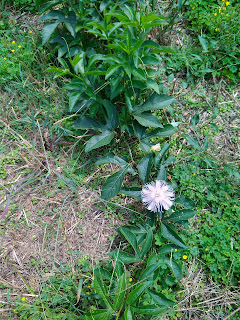"WILDLIFE WEDNESDAY"
"The Maypop and the Ocoee River"
Many of us that grew up in the South, spend many childhood hours stomping "maypops". Hence the common name "maypop" the fruit of the Purple Passion Flower (Passiflora incarnata) will make a loud POP when a little boys foot comes down on it.... or when it bangs into the chest of one of his friends....... (maypop wars were pretty fun).
Scientific name: Passiflora incarnata
Common name: Purple Passion flower, Maypop, Wild Apricot
Common name: Purple Passion flower, Maypop, Wild Apricot
So What does this have to do with the Ocoee River?
As most that know me personally, know that I spent a good portion of my life on and around the whitewater rivers. I have been an avid whitewater kayaker since about 1990 when my big brother let me paddle his kayak down the Mulberry and Locust Fork rivers in Alabama. As I got older we soon ventured north to the dam controlled waters of the Ocoee river in southern Tennessee. This was one of the only places to be able to paddle whitewater during the summer months. I grew very fond of the area and its history. In my early 20's I even called this place my home. I had a house right on the Ocoee river just below the No.1 dam. Man those were some good times! Because of my love for the area I started learning more and more about the history of the area. I was somewhat shocked to find out that the river's namesake, "Ocoee", was the good ole "maypop". The Cherokee in the area called Passiflora incarnata by the name "ocoee" and because of the prevalence of the plant in the area the whole area became know as Ocoee. The Purple Passion Flower is also the Tennessee state Wildflower.
The fruit is good for uses other than for 12yr old boys amusment. It has historically been used as an herbal medicine for treatment of anxiety and insomnia. The fruit is edible and is commonly used to make jelly and jams.
This plant is commonly thought of as an agricultural weed, but is often grown in gardens and landscapes for its flower. It can be very aggressive in its growth and can be very invasive in the right conditions.
This plant is commonly thought of as an agricultural weed, but is often grown in gardens and landscapes for its flower. It can be very aggressive in its growth and can be very invasive in the right conditions.

















Interesting! We need to schedule a trip there next spring or when the time is right. Shelli and I would love the experience, we've never been.
ReplyDeleteJust let me know. I love it up there. I would love showing you guys down the river.
Delete